Reading Deep and Wide: My First 25 Books I’ve Read in 2018
At the beginning of this year, I set a goal not for the quantity of books that I would like to read this year, but the quality of the reader that I would like to become. I'm happy to report that not only did I make it through January without TV in the evening, but I found that I truly enjoyed reading more in the evenings. The rest that came from soaking in a good book refreshed my soul unlike binge watching a favorite TV series.
It has also awakened an appetite for reading that I've found more time to read during the day than I thought was available. Even though I wasn't reading for a certain number of books in a year, I've found time to read 25 in the first three months of 2018. That thrills my heart!
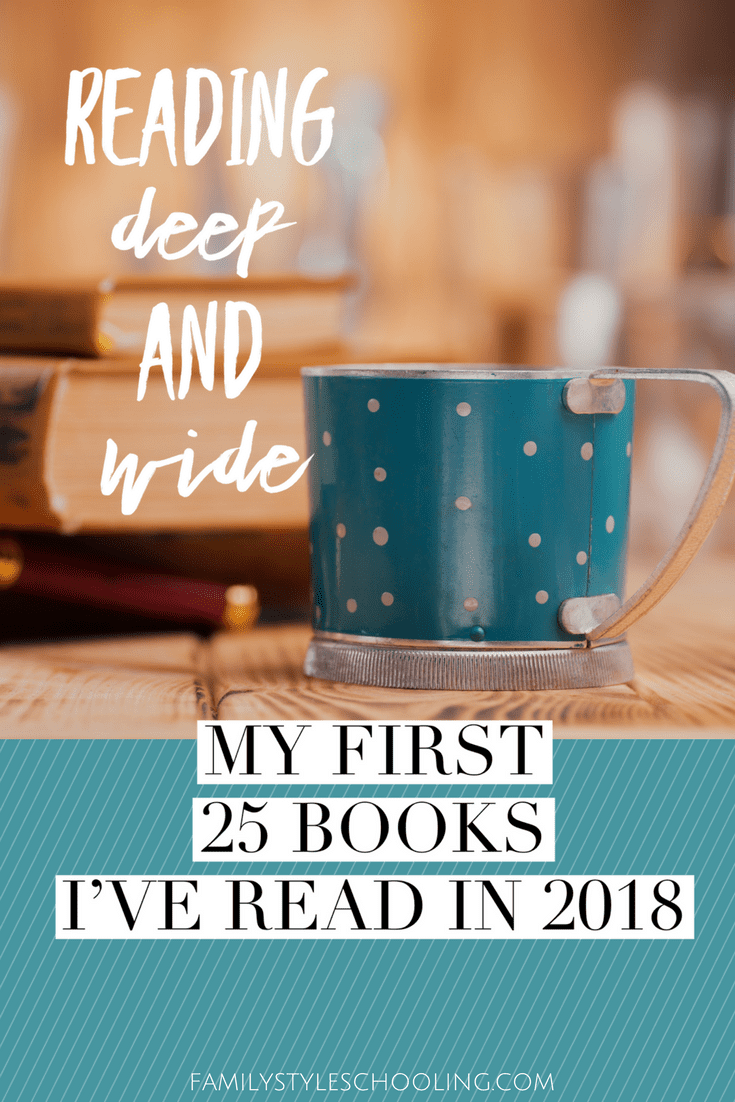
It is becoming more and more apparent that our society is full of functional illiterates. This Mark Twain quote has come up a couple of times in different sources recently:
The man who does not read good books has no advantage over the man who cannot read them. - Mark Twain
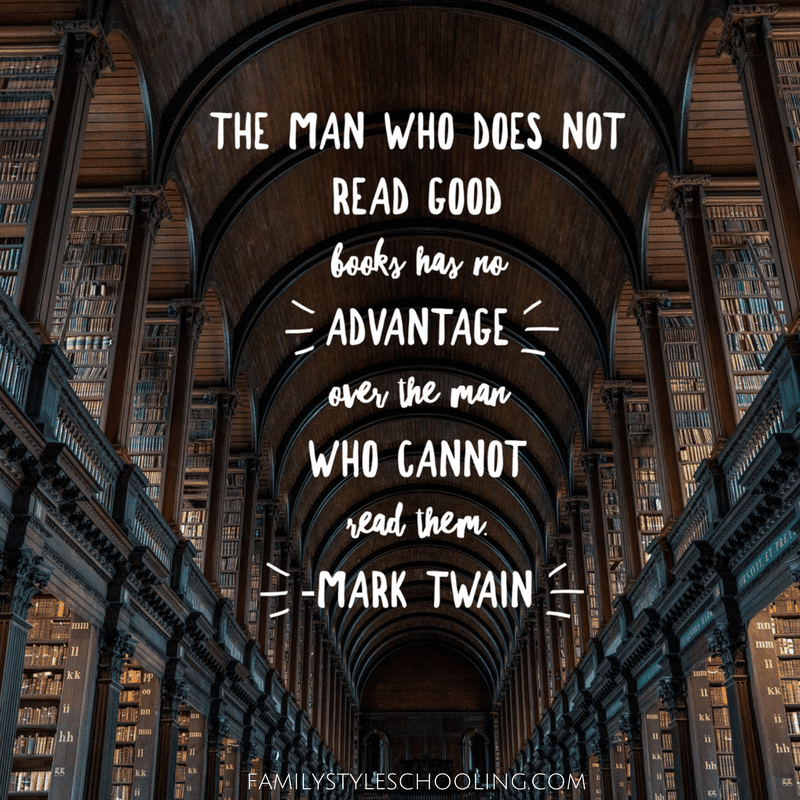
One of the books I've most recently finished brings up some interesting points about the values of reading:
Reading of course can easily be nothing more than a way to kill time; but if it is calculated and intense, it is a steady extension of one's life. If life is measured by consciousness, one whose mind is full lives longer than one whose mind is empty—just as one who is awake 18 hours a day lives longer than one who sleeps away every 12 hours. You can add to life by adding to the quantiy of conscious moments through reading. This is true no matter what you read—history, poetry, novels, essays, letters, diaries, memoirs, criticism...For to read intelligently and profitably, your imagination must work every minute, reconstructing the lives, events, and emotions depicted in print. - Jacques Barzun Begin Here: The Forgotten Conditions of Teaching and Learning
Reading Deep: The Courage to Try Reading Difficult Books
My husband and I started off the year reading some of Plato's conversations together along with a couple of Sophocles' tragic plays. What we discovered is that some of these works are not as far out of our literary reach as we once imagined. Aristotle's Nicomachean Ethics is still a challenge, but we are in no rush to make it through.
Those early successes gave my husband and I the courage to start to reading G.K. Chesterton's Orthodoxy together. This book intimidated me for a long time, but we decided it was worth our time and effort to attempt, and so far (two chapters in) we have been richly blessed. We are taking our time, reading through paragraph by paragraph, idea by idea, to uncover the wisdom Chesterton so carefully laid out. It is like a formal banquet, and we must approach it with the care and preparation in which it was laid out for us.
I'm truly starting to see the entrance into great conversations that people have been participating in for years. When you read something from an original text that inspired another familiar work, you feel a deep connection to both author and creator. It's really quite remarkable.
Reading Wide: Filling a Well Furnished Mind
I don't believe that every book you pick up to read has to be a classic. Barzun qualifies a classic as "a book that can stand to be read again." I've enjoyed many of the books that I've read so far this year. Some of them I am reading for a second or third time (The Hobbit), and others, while I enjoyed them, will not make the cut for a second read.
I think it's important to read a variety of different kinds of books. Some of my favorite reads have been books written for children. Two such surprises for me were Wonder and The Angel Knew Papa and the Dog. They were both beautiful descriptions of how people respond to challenges and trials.
However, I don't want to only read children's fiction (however fun it may be!). I've also been challenged by some of the non-fiction reads, Begin Here and The Big Picture. Each of these titles stretched a different part of my brain.
If you were to work out only one muscle in your body, you'd be pretty out of balance. In the same way, reading a variety of books works out different areas of your brain to furnish it with a variety of excellent resources to dwell upon.
Top Recommendations from my First 25
I won't share all of my thoughts about every book I've read this year, but I do want to highlight a few that have been stand-outs above the rest that I think you might enjoy:
Best Fiction for Adults - Hannah Coulter by Wendell Berry
When I was at the Great Homeschool Convention, Andrew Kern recommended Hannah Coulter. I know he's always recommending Wendell Berry books, but this suggestion stood out for me this year as he said it was one of the best books depicting joy in the midst of grief. As the second year anniversary of my sister's death just passed, this suggestion caught my attention. I quickly ordered the book and immersed myself in Berry's fictional rural farming world. It was a soothing balm to my heart that continues to process my grief while working out what it looks like to live a joy filled life. I highly recommend this one!
 Best Fiction Series - Ranger's Apprentice by John Flanagan
Best Fiction Series - Ranger's Apprentice by John Flanagan
A friend had recommended this series to me, and then I recommended it to another friend even though I hadn't yet read it myself. When my second friend said her son was enjoying the series, I thought I had better read them myself before I continued to direct young readers to them.
I read the first five books in the series in two weeks. Set in a fictional world, these medieval type stories portray bravery, chivalry, and honor in a way that most modern writers abandon. I'm taking a quick break from the series to read other things, but I look forward to discovering what happens next in the continuing stories of my new friends!
Best Non-Fiction: Defeating Darwinism by Opening Minds by Phillip Johnson
Even though this was my second time to read this book, it stirred up such excellent conversations with my Challenge B students that I fell in love with it all over again. What I really love about this book isn't really the arguments it brings up against Darwin's theory of evolution. My appreciation for this text falls more into the sub-title of the book: "by opening minds." While presenting counter arguments to the evolutionary theory, Johnson also models a beautiful way of questioning propositions that helps students (and adults) pause and consider before accepting or rejecting an idea. More often there isn't a hard and fast answer to an idea that is being discussed. This book shows that asking questions isn't disrespectful. Questions lead to open minds and a search for Truth.
What books are you currently reading? Share your favorites in the comments, and I'll add them to my reading list!
Betsy Strauss is an unexpected homeschooler, mother of three, who is in a relationship with a sweet man for life. She loves reading books, drinking coffee, and learning anything with her kids.

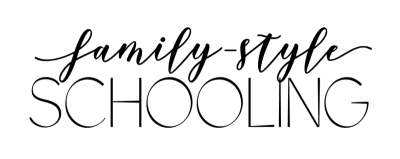
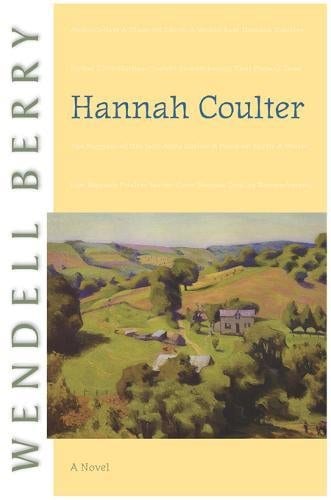
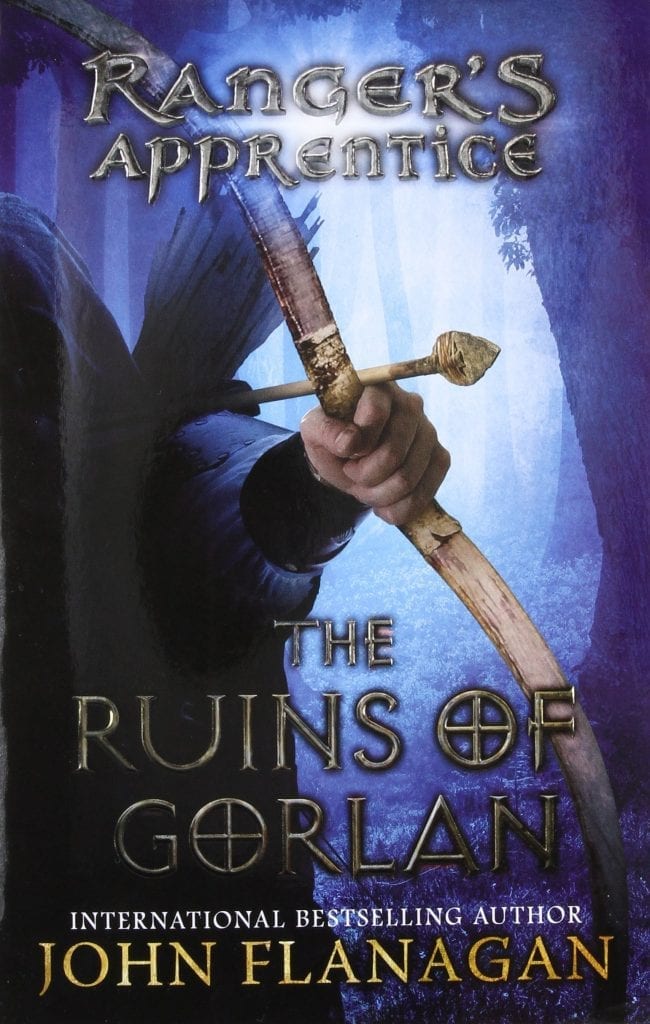
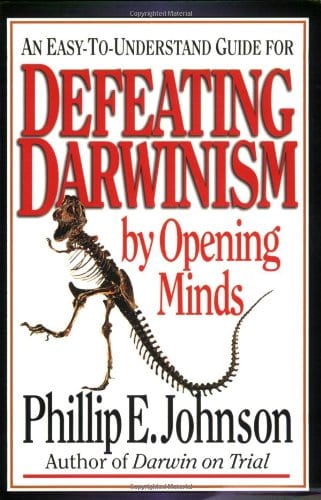






















Hannah Coulter is probably my favorite book of all time – such a lovely store from times gone by. I also am a fan of anything by Francine Rivers and read Unveiled (and the others in that series) many years ago, and just pulled them out to read again soon!
Thanks for your recommendations!
Francine Rivers is one of my favorite writers. I’ve enjoyed reading through her Lineage of Grace series. But yes! Hannah Coulter was so good. Have you read any other of Wendell Berry’s series? I’ve had fun keeping up with you on Goodreads! I love seeing what you’re reading too!